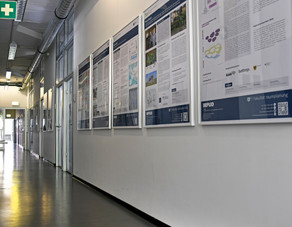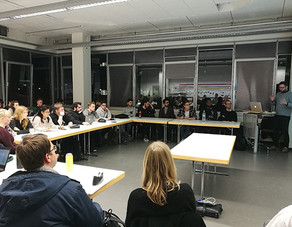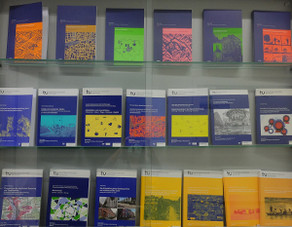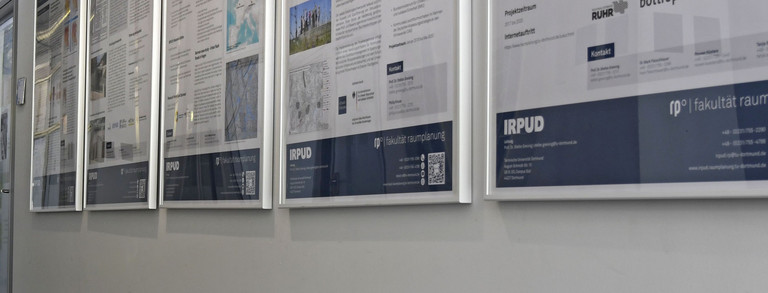LIRLAP: Community Workshop and Gaming Simulations Workshop in Metro Manila, February 2024 on Resilience Upgrading


The aim was to strengthen local interest groups and jointly develop solutions for the ULHOA upgrading pilot site in Canumay East in the city of Valenzuela, Metro Manila. The objective was to identify innovative and adaptive planning tools for the pilot site to qualify it from an informal and disaster-prone settlement to a sustainable, livable and safe settlement at an acceptable standard.
On 13 February, the barangay and community representatives welcomed the WP2 team at the Canumay East Barangay Hall. The community workshop participants were divided into three groups, each tasked to address relevant topics, particularly incremental housing and site development, community-based disaster risk reduction management, and flood risks and interventions. The local NGOs RADIC and TAMPEI helped to compile and document the results of the three groups. The groups jointly identified the most pressing development challenges and made potential proposals for the following workshop on Gaming Simulation (GS), which took place on 16 February and was led by Philippine team leader Prof. Dina Magnaye.
A video message from LIRLAP project leader Prof Stefan Greiving, IRPUD, emphasised the importance of stakeholder engagement in shaping the course of the project. Vincent Eugenio presented the message of greeting from Congressman Francisco Benitez, Chairman of the Housing Committee of the Philippine House of Representatives. The letter recognised the importance of improving resilience on the ground and called for the support of all potential partners for LIRLAP. Based on their real life work assignments and experiences, the participants were divided into three groups with the same three themes of the community workshop to play out a simulation of decision-making. Led by Prof Sheilah Napalang, they delved into the complexities of ULHOA and considered solutions ranging from upgrading to community-based disaster risk reduction management and actionable flood interventions for the pilot site. Prof Kaiser presented his findings and technical solutions on the flood interventions on site.
A notable highlight of the GS workshop was the afternoon session on ‘Conflict Resolution and Compromise’ among all participants, based on the results of their group's work. Participants explored the implications of political decisions and emphasised the central role of adapting legally binding requirements to integrate proposed solutions into the ongoing development of ULHOA. The negotiations were open and very constructive. All participants endeavoured to reach feasible agreements and innovative planning approaches to build the resilience of informal settlements and a shared future for the settlers. The results of the workshop provided Dr Mia Wannewitz from Ludwig Maximilian University with input for political implementation. Finally, Dr Juan Du from TU Dortmund University underlined the collective determination to promote a feasible development of ULHOA for the upcoming implementation phase of the LIRLAP project. She emphasised the potential knowledge transfer from the pilot site in the Philippines to the LIRLAP project context in Vietnam and Bangkok.
EXCURSION OF THE F-PROJECT F04 TO MANILA AS PART OF THE LIRLAP PROJECT
As part of the two-semester advanced project "F04 - Natural and man-made causes of urban floodings. Options for planning interventions towards mitigation and support livelihoods of urban poor settlers in Metro Manila" at the Faculty of Spatial Planning, an excursion to Metro Manila in the Philippines took place from 18.2.2024 to 6.3.2024. All 13 student project participants as well as Dr. Wolfgang Scholz as supervisor and Prof. Dr. Mathias Kaiser as advisor from the faculty took part.
The topic of the project is the analysis of resettlement programs in Metro Manila. The resettlement sites are well-planned new residential areas, but with poor construction and no infrastructure facilities, with only limited public transport and, above all, very few opportunities to earn a living through jobs.
The settlers tried to enlarge the buildings for income-generating activities and space for the growing families. Although the resettlement projects were intended to protect residents from flooding, the case study was flooded again, and resettlement is under discussion. In our joint research project, we identified the most important challenges through household interviews and established close connections with the residents.
The aim of this excursion was to obtain information through expert interviews as well as interviews and mapping in the settlement. A presentation of the interim results at the partner university of the TU in Quezon City and a joint student workshop with architecture students at the University of San Tomas provided further important impetus for the project. The excursion was divided into the following steps:
- The first one-week work phase served to establish contacts and present the work program to cooperation partners and key people in Manila. On 20 February, a full-day inspection of the settlement was carried out under the guidance of residents' initiatives, which was evaluated the following day and served as a basis for revising the research questions and the work programme. On 22 February, two expert interviews were conducted at the partner university. The group took part in a full-day workshop of the LIRLAP research project on 23.2. Over the weekend, the results were documented and evaluated, and a city tour of Metro Manila was undertaken.
- In the second week, work was carried out on site in the settlement. For this purpose, the group moved to a local accommodation. For the study area, the spatial population was thematically mapped and analyzed. An important part of this work step were the evening meetings, in the course of which all the results of the day were discussed and an exchange took place. The results of these meetings were then directly integrated into the next day's work.
- The third phase (3rd week) consisted of a joint workshop with architecture students from San Tomas University in Manila and a final presentation on March 6 at the partner university in Quezon City. The feedback from these presentations were directly integrated into the final report.








